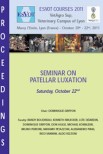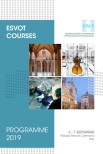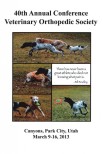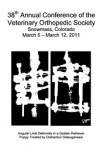Objective: To describe a novel histological subtype of skull base and cranial cervical meningioma operated upon through an uncommon atlanto basioccipital approach Study design: Clinical case report Animal: A seven-year-old neutered female Boxer Methods: The dog was presented due to lethargic behavior, signs of head and neck pain, and ongoing tetraparesis. Neurological examination and magnetic resonance imaging led to diagnosis of a ventral spinal canal mass causing severe cord and brainstem compression and which required surgical management. Results: The mass was approached through a ventral craniectomy extending cranially on the basioccipital bone. Extemporaneous cytological examination of the mass led to confirmation of neoplastic nature of the abnormal tissue. Cytoreduction of the mass was performed using multiple cycles of curettage, lavage and suction. Histopathological examination of the tumour was consistent with a papillary variant of meningioma. Adjuvant therapy was declined by the owners. The dog improved considerably in the postoperative period, however three months after surgery signs of recurrence led to euthanasia. Conclusions: Basioccipital craniectomy allowed a limited but sufficient approach for cytoreduction of a compressive meningioma of the brainstem and cranial cervical spinal cord. Papillary meningiomas are locally infiltrative and postoperative recurrence is common. Clinical relevance: Basioccipital approach combined with cranial atlanto corpectomy can be performed to relieve compression of the caudal brainstem and cranial cervical cord.
Canine meningioma: A case report of a rare subtype and novel atlanto basioccipital surgical approach.
Date
2010
Journal
VCOT
Volume
23
Number
5
Pages
372-6









